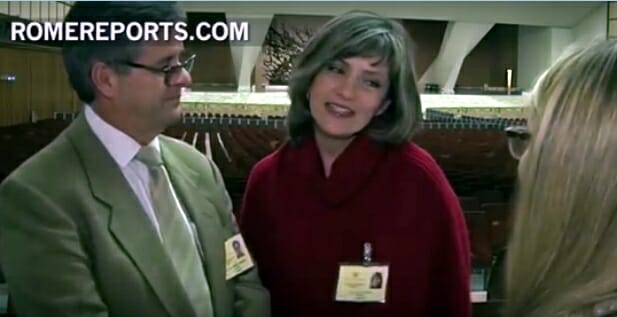
Oct 16, 2015 | Non categorizzato
 They have been married for 23 years and have two teenage sons. Raised in Catholic families, they met in the Focolare Movement to which they still belong. “We had worked in the past with a group of other young people in a marginalised quarter on the periphery of Bogota,” they recounted in their testimony at the Synod assembly. “We played with the children, taught the adults how to read, and offered free medical and dental assistance. They were talking about the Los Chircales quarter where the Centro Sociale Unidad is headquartered: “Obstacles were not lacking,” the Colombian couple who spoke at the Synod the family, said, “beginning from our concern for our personal well-being, and the fear of going into those rundown neighbourhoods and slums. But the desire to serve those brothers and sisters was more powerful than our fragility.”
They have been married for 23 years and have two teenage sons. Raised in Catholic families, they met in the Focolare Movement to which they still belong. “We had worked in the past with a group of other young people in a marginalised quarter on the periphery of Bogota,” they recounted in their testimony at the Synod assembly. “We played with the children, taught the adults how to read, and offered free medical and dental assistance. They were talking about the Los Chircales quarter where the Centro Sociale Unidad is headquartered: “Obstacles were not lacking,” the Colombian couple who spoke at the Synod the family, said, “beginning from our concern for our personal well-being, and the fear of going into those rundown neighbourhoods and slums. But the desire to serve those brothers and sisters was more powerful than our fragility.”  “We married and the grace of the sacrament soon began to manifest itself.” They are very different from one another: Luis, “the calm type”, Maria Angélica “a volcano”. “We knew that human love easily vanishes. The years go by and the initial enchantment diminishes. For this reason it was important for us to bulk up on God’s love, which taught us to love in the small things of everyday life.” Luis admitted: “For me that means not waiting to be waited on, but rather to help out washing the dishes, or to listen more attentively when she wants to tell me something. On her part, M. Angélica watches the Formula 1 with me..” By nourishing ourselves on the Eucharist, approaching the sacrament of Confession and remaining in this relationship of mutual love, we experience that Jesus becomes present in our midst, and then we have the light to raise our sons, and the strength to face the inevitable difficulties that come our way.” “A short time ago we had a rather strong conversation and the unity between us was shattered. That night, we went to bed without apologising to each other” (one of the three things that Pope Francis says should never be done in the life of a couple): “I telephoned Lucho,” M. Angélica recounts, “and told him I was sorry for having answered him so awfully. Then it turned into an opportunity to begin again loving every time we fail.” Together with bishops and priests from several cities in Colombia, and with other families and young people, they organized a series of visits to several poor communities; “The idea was to share our experiences and offer some formation as a family. Some of the couples confided their desire to receive the sacrament of matrimony.”
“We married and the grace of the sacrament soon began to manifest itself.” They are very different from one another: Luis, “the calm type”, Maria Angélica “a volcano”. “We knew that human love easily vanishes. The years go by and the initial enchantment diminishes. For this reason it was important for us to bulk up on God’s love, which taught us to love in the small things of everyday life.” Luis admitted: “For me that means not waiting to be waited on, but rather to help out washing the dishes, or to listen more attentively when she wants to tell me something. On her part, M. Angélica watches the Formula 1 with me..” By nourishing ourselves on the Eucharist, approaching the sacrament of Confession and remaining in this relationship of mutual love, we experience that Jesus becomes present in our midst, and then we have the light to raise our sons, and the strength to face the inevitable difficulties that come our way.” “A short time ago we had a rather strong conversation and the unity between us was shattered. That night, we went to bed without apologising to each other” (one of the three things that Pope Francis says should never be done in the life of a couple): “I telephoned Lucho,” M. Angélica recounts, “and told him I was sorry for having answered him so awfully. Then it turned into an opportunity to begin again loving every time we fail.” Together with bishops and priests from several cities in Colombia, and with other families and young people, they organized a series of visits to several poor communities; “The idea was to share our experiences and offer some formation as a family. Some of the couples confided their desire to receive the sacrament of matrimony.”

Interview with Rome Reports
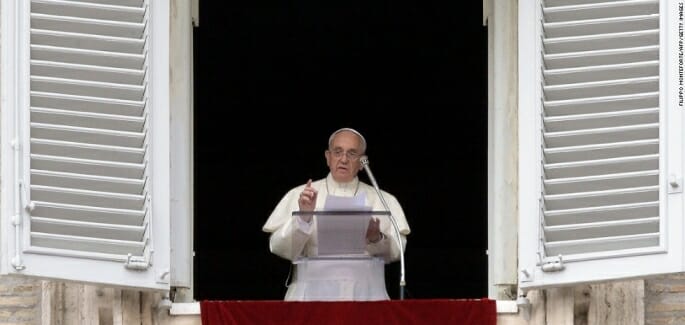
Oct 15, 2015 | Focolare Worldwide
 “We are painfully wounded and follow with deep concern what is taking place in Syria, Iraq, Jerusalem and the West Bank where we are witnessing an escalation in the violence that involves innocent civilians and continues to increase a humanitarian crisis of enormous proportions. War only brings destruction and multiplies the sufferings of entire populations,” stated Pope Francis during the works of the Synod on the Family. “Thank you for your prayers, for this situation we are going through in the Holy Land,” writes the local Focolare Community there. “The hatred leads to violence, and the violence to more hatred . . . a vicious circle is spinning out of control. You can see the situation here transmitted on the media every day. All of us, from both sides, like many other people are deeply saddened and feel helpless in front of this evil. We try to move carefully; we pray more; we try to sow love with a smile or an act of kindness. . .” “We continue to pray and to build peace,” they conclude, “hoping that the longing for reconciliation prevails.”
“We are painfully wounded and follow with deep concern what is taking place in Syria, Iraq, Jerusalem and the West Bank where we are witnessing an escalation in the violence that involves innocent civilians and continues to increase a humanitarian crisis of enormous proportions. War only brings destruction and multiplies the sufferings of entire populations,” stated Pope Francis during the works of the Synod on the Family. “Thank you for your prayers, for this situation we are going through in the Holy Land,” writes the local Focolare Community there. “The hatred leads to violence, and the violence to more hatred . . . a vicious circle is spinning out of control. You can see the situation here transmitted on the media every day. All of us, from both sides, like many other people are deeply saddened and feel helpless in front of this evil. We try to move carefully; we pray more; we try to sow love with a smile or an act of kindness. . .” “We continue to pray and to build peace,” they conclude, “hoping that the longing for reconciliation prevails.”
Oct 15, 2015 | Non categorizzato
https://www.youtube.com/watch?v=om7WN06PMiU
Oct 14, 2015 | Non categorizzato
In 5 September the Gen Rosso International Performing Arts Group started its tour with the Fazenda da Esperança which is celebrating in 6 different cities the definitive approval of the work of Frei Hans, Nelson, Lucy and Iraçi called Familia da Esperança. First stopover: Palmas, at the geographic centre of Brazil, a recently built city and capital of the new state of Tocantins. 9 workshops (stage scenery, theatre, music, hip-hop gang, hip hop combination, Festao, strong moves, percussions and broadway) and 2 concerts with a total of 2,300 people. Also the National network TV Globo, the Director of the TV Anhaguera channel, the Director of the local newspaper, the Prefect, Archbishop and 2 bishops will be present. The second stopover from 14 to 20 September: Caxias in the state of Maranão which is a state with prevalently farming activities. Third stopover in Manaus (21-25 September) and Garanhuns in the State of Pernambuco. In October the group will be in Casca in the State of Rio Grande do Sul, up the 17th after which, in Guaratinguetá in the state of San Paolo and Guarapuava in the State of Paraná. TOUR Programme in Brazil
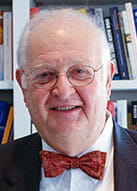
Oct 14, 2015 | Non categorizzato
 The 2015 Nobel Prize awarded to Angus Deaton for his studies on economic development, wellbeing, inequality, consumption choices and the determination of poverty is a very important sign: after years of the financial crisis, Stockholm and its consultants continued to award economists who had studied and promoted economy and finance that contributed to generating the crisis. In this most important seat of contemporary science and social sciences, the awarding of the Nobel Prize to Deaton has returned to promoting the really all-around social scientists of the world, and advocates of a political or civil science which is at the origin of modern economy. Stockholm’s policy has been somewhat bizarre over the last years: from 2010 to 2013, while capitalism was running the risk of an implosion under an unprecedented financial crisis, the Nobel Prizes for Economy were awarded to some economists who were among the major advocates of the economic and financial paradigm that was revealing all its tragic limits. It was almost as if during a summer with the highest number of arson crimes ever, the award was to go to those who studied sophisticated fire-lighting techniques. This is why the Nobel Prize this time, and in some way that of last year assigned to the Frenchman, Jean Tirole, could be a sign of a reverse trend since the award to Deaton closely resembles the awards given to Amartya Sen, Joseph E. Stiglitz, Elinor Ostrom and more recently to Eugene Fama and Lloyd Stowell Shapley. We must not forget that the financial and economic crisis we experienced and are still undergoing, is not independent from the economic theories of the last decade, since unlike the astrophysicists whose theories do not modify the orbit of the planets, economists and their theories strongly impact on economic choices. Over the last years the best of the world’s economic departments were increasingly filled with more mathematicians with increasingly scarce humanistic backgrounds, and experts of hyper-specialised models most of whom were no longer capable of having an overall view of the economic system and thus associate their models with the socio-economic reality. Besides the award to Deaton following that given to Tirole, this could indicate a return to a more European economic theory, which pays greater attention to the social dimension of the profession, and more sensitivity to the themes of collective wellbeing and not only individual profits and turnovers. This probable dawning will, however, reach its peak if the next Nobel prizes highlight more philosopher economists and less mathematician economists, as once described by the British economist, Robert Sugden, in 1991: “The economist today needs to return to being more of a philosopher and less of a mathematician.” It was an invitation which at that time was hardly noticed by professionals of the sector, but we may still be on time to do so. Angus Deaton is furthermore, an economist who not only writes mathematic articles but also books. We recommend his latest work, “The Great Escape: Health, Wealth, and the Origins of Inequality,” in which the new Nobel laureate and authentic social scientist and rightful heir of this co-citizen, Adam Smith (philosopher and economist), asked himself whether humanity will, in the future, enjoy a period of progress without inequality, a fundamental issue today when we are paying the price for progress with growing inequality in the world and a decrease in happiness. Economics could return to being a moral, society-friendly science if it will start again to ask itself questions which were too rapidly abandoned to respond to easier queries, less useful to human progress. Luigino Bruni
The 2015 Nobel Prize awarded to Angus Deaton for his studies on economic development, wellbeing, inequality, consumption choices and the determination of poverty is a very important sign: after years of the financial crisis, Stockholm and its consultants continued to award economists who had studied and promoted economy and finance that contributed to generating the crisis. In this most important seat of contemporary science and social sciences, the awarding of the Nobel Prize to Deaton has returned to promoting the really all-around social scientists of the world, and advocates of a political or civil science which is at the origin of modern economy. Stockholm’s policy has been somewhat bizarre over the last years: from 2010 to 2013, while capitalism was running the risk of an implosion under an unprecedented financial crisis, the Nobel Prizes for Economy were awarded to some economists who were among the major advocates of the economic and financial paradigm that was revealing all its tragic limits. It was almost as if during a summer with the highest number of arson crimes ever, the award was to go to those who studied sophisticated fire-lighting techniques. This is why the Nobel Prize this time, and in some way that of last year assigned to the Frenchman, Jean Tirole, could be a sign of a reverse trend since the award to Deaton closely resembles the awards given to Amartya Sen, Joseph E. Stiglitz, Elinor Ostrom and more recently to Eugene Fama and Lloyd Stowell Shapley. We must not forget that the financial and economic crisis we experienced and are still undergoing, is not independent from the economic theories of the last decade, since unlike the astrophysicists whose theories do not modify the orbit of the planets, economists and their theories strongly impact on economic choices. Over the last years the best of the world’s economic departments were increasingly filled with more mathematicians with increasingly scarce humanistic backgrounds, and experts of hyper-specialised models most of whom were no longer capable of having an overall view of the economic system and thus associate their models with the socio-economic reality. Besides the award to Deaton following that given to Tirole, this could indicate a return to a more European economic theory, which pays greater attention to the social dimension of the profession, and more sensitivity to the themes of collective wellbeing and not only individual profits and turnovers. This probable dawning will, however, reach its peak if the next Nobel prizes highlight more philosopher economists and less mathematician economists, as once described by the British economist, Robert Sugden, in 1991: “The economist today needs to return to being more of a philosopher and less of a mathematician.” It was an invitation which at that time was hardly noticed by professionals of the sector, but we may still be on time to do so. Angus Deaton is furthermore, an economist who not only writes mathematic articles but also books. We recommend his latest work, “The Great Escape: Health, Wealth, and the Origins of Inequality,” in which the new Nobel laureate and authentic social scientist and rightful heir of this co-citizen, Adam Smith (philosopher and economist), asked himself whether humanity will, in the future, enjoy a period of progress without inequality, a fundamental issue today when we are paying the price for progress with growing inequality in the world and a decrease in happiness. Economics could return to being a moral, society-friendly science if it will start again to ask itself questions which were too rapidly abandoned to respond to easier queries, less useful to human progress. Luigino Bruni
Oct 14, 2015 | Non categorizzato
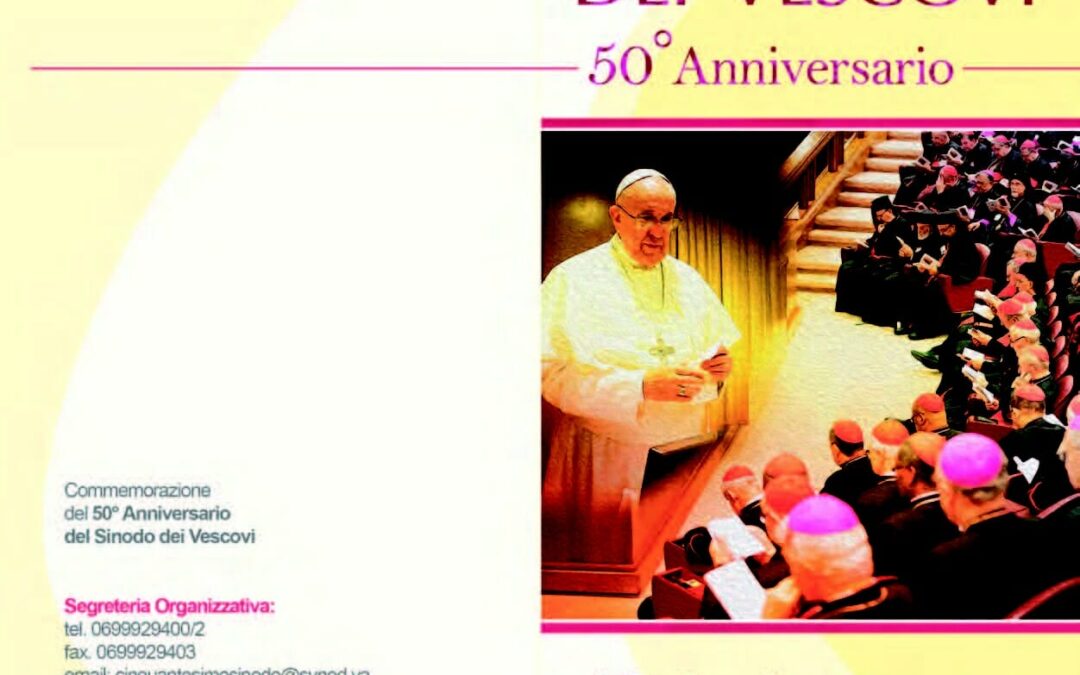
Oct 13, 2015 | Non categorizzato
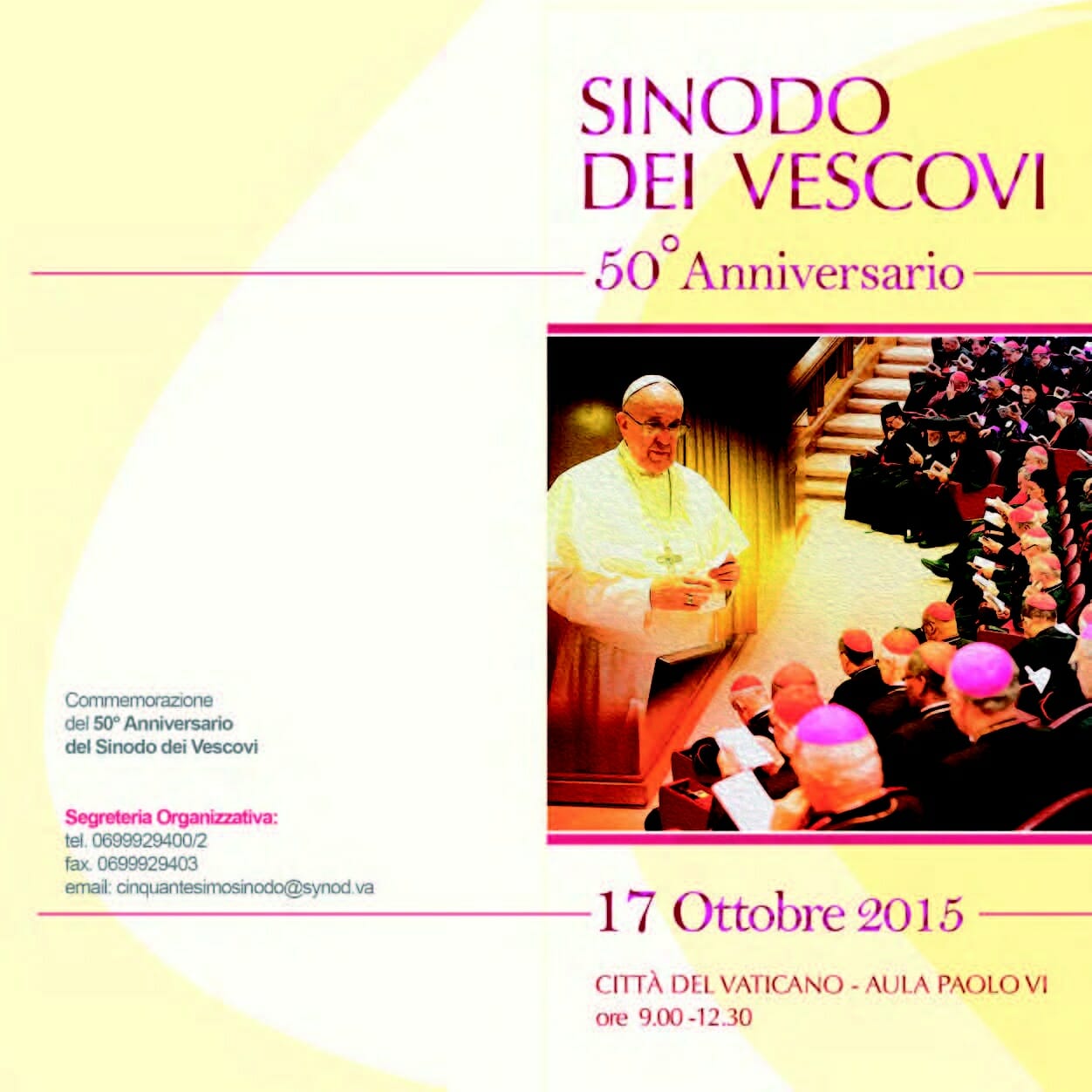 The Synod of Bishops is a permanent institution that was created by Paul VI on September 15, 1965, to keep alive the spirit of collegiality of the Second Vatican Council. This year marks the 50th anniversary of the institution, and the Catholic Church remembers it during the ordinary assembly of the Synod of Bishops, on “the vocation and mission of the family in the Church and in the contemporary world (October 5-25, 2015). On the morning of October 17, in the presence of Pope Francis, interventions will be given by Cardinal Lorenzo Baldisseri, General Secretary of the Synod of Bishops, and Cardinal Christoph Schönborn, President of the Bishops Conference of Austria. This will be followed by messages of bishops from the five continents, and the concluding address by the Holy Father. There is a large delegation from the Focolare amongst the invited guests, including Focolare president Maria Voce who described the Synod of Bishops as “one of the best fruits of the Second Vatican Council for a new sense of collegiality and deeper communion for the further building up of the Universal Church.” Synod comes from the Greek word “syn-hodos” which means “meeting” or “together”. The original meaning of the word, which is to “walk together”, expresses the essence of the Synod: a place for the bishops to encounter one another with the Pope, to share their thoughts and experiences in the common search for pastoral solutions that can be offered to the Church around the world.
The Synod of Bishops is a permanent institution that was created by Paul VI on September 15, 1965, to keep alive the spirit of collegiality of the Second Vatican Council. This year marks the 50th anniversary of the institution, and the Catholic Church remembers it during the ordinary assembly of the Synod of Bishops, on “the vocation and mission of the family in the Church and in the contemporary world (October 5-25, 2015). On the morning of October 17, in the presence of Pope Francis, interventions will be given by Cardinal Lorenzo Baldisseri, General Secretary of the Synod of Bishops, and Cardinal Christoph Schönborn, President of the Bishops Conference of Austria. This will be followed by messages of bishops from the five continents, and the concluding address by the Holy Father. There is a large delegation from the Focolare amongst the invited guests, including Focolare president Maria Voce who described the Synod of Bishops as “one of the best fruits of the Second Vatican Council for a new sense of collegiality and deeper communion for the further building up of the Universal Church.” Synod comes from the Greek word “syn-hodos” which means “meeting” or “together”. The original meaning of the word, which is to “walk together”, expresses the essence of the Synod: a place for the bishops to encounter one another with the Pope, to share their thoughts and experiences in the common search for pastoral solutions that can be offered to the Church around the world.
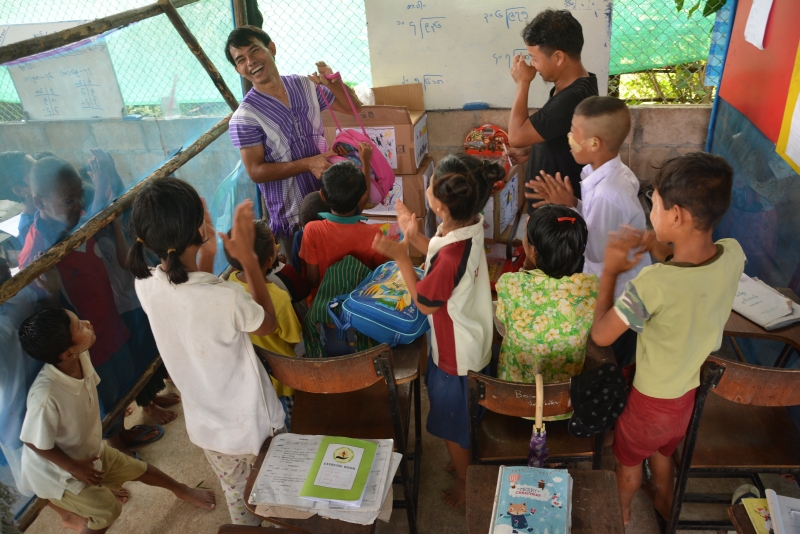
Oct 13, 2015 | Focolare Worldwide
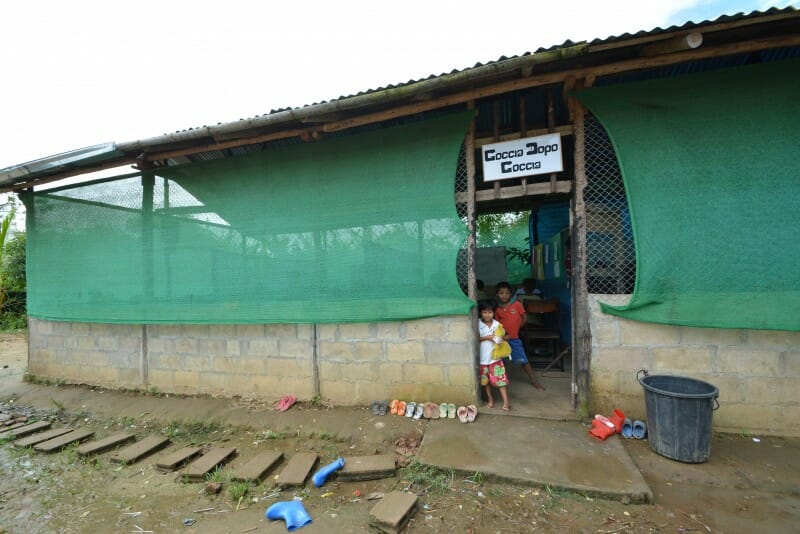 “It’s early morning, following a night of rain on the border between Thailand and Myanmar. Our breakfast consists of a hard-boiled egg and coffee. It’s the beginning of our adventure: four days in Mae Sot with a priest who works for refugees, the least of the least, the ones who don’t get into the official United Nations camps, the ones nobody cares for and who are often unpaid by those for whom they do a week’s work. They’re undocumented and don’ts have the power to protest, because nobody will defend them. Many of them have spent many years in the forests, and finally they can come out. Living amongst the walls and tunnels of factories and makeshift huts, it’s a miracle they’re still alive. Nobody talks about them, and nobody knows about their situation, but everyone knows that they’re worth their weight in gold, a low-cost work force of people ready to work for small salaries, just enough to live on. It’s why Mae-Sot will become such a special economic zone with many industries. We want to be here for at least a few of them. We’ve begun a project that helps the children in a school that didn’t exist too long ago, if not in the dreams of the children of Latina, Italy, and the refugee peers in Mae-Sot.
“It’s early morning, following a night of rain on the border between Thailand and Myanmar. Our breakfast consists of a hard-boiled egg and coffee. It’s the beginning of our adventure: four days in Mae Sot with a priest who works for refugees, the least of the least, the ones who don’t get into the official United Nations camps, the ones nobody cares for and who are often unpaid by those for whom they do a week’s work. They’re undocumented and don’ts have the power to protest, because nobody will defend them. Many of them have spent many years in the forests, and finally they can come out. Living amongst the walls and tunnels of factories and makeshift huts, it’s a miracle they’re still alive. Nobody talks about them, and nobody knows about their situation, but everyone knows that they’re worth their weight in gold, a low-cost work force of people ready to work for small salaries, just enough to live on. It’s why Mae-Sot will become such a special economic zone with many industries. We want to be here for at least a few of them. We’ve begun a project that helps the children in a school that didn’t exist too long ago, if not in the dreams of the children of Latina, Italy, and the refugee peers in Mae-Sot. 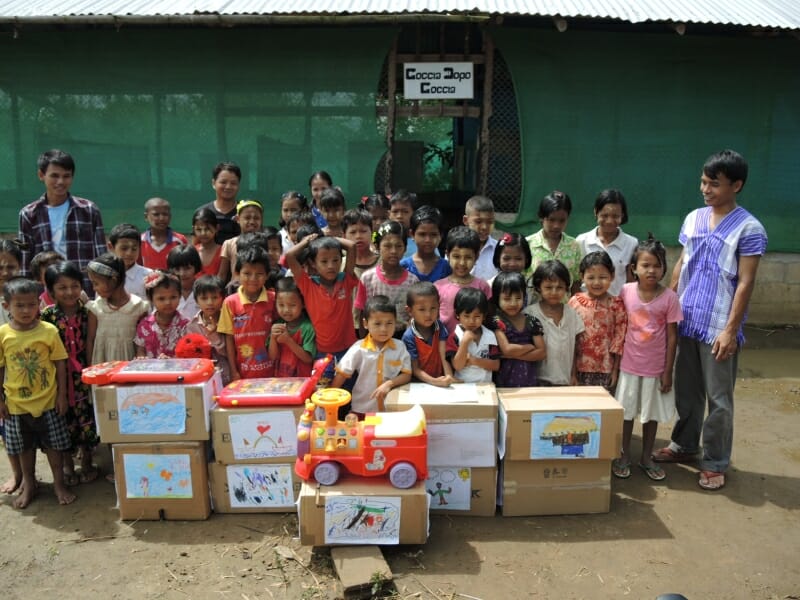 Now, the school does exist and it’s named is “Drop by Drop”. It’s an unlikely pairing between Latina and the mire of Mae-Sot: injustice, illness, rape, abuse, and so on. Some do well, and some thank God that they are still alive in the morning. . . and at night! Like one of the children at the school. I ask his mother: “What is your son’s name?” “Chit Yin Htoo,” she tells me. It means: “If you love me answer me.” “Did you give him the name when he was born?” I ask. “Maybe 3 or 4 years ago, maybe 5 or 6.” At this point I stop and am unable to go on writing. I can only pray that I don’t cry in front of this mother. How can this be? This project was a “loving folly“’ that only the mind of a child could dream up. And that’s what love is, it makes the desert flower, it spurs you to do the impossible, and it makes you glad! We adults follow these children with fear and trembling and respect, I would say: “Their angels gaze upon the Father in Heaven.” When I’m with “If you love me, answer me” I find it hard to make him smile. He’s shy and reserved. Only after much time am I able to take him in my arms: 6 years old, or perhaps 5. . . nobody is really sure . . . fragile and light as a feather. What have his small eyes seen? With a faint voice he’s just able to whisper a message. We distribute food, milk and especially puppets and toys: lanterns, then clothes that make everyone happy. “We don’t have enough for everyone, but let’s ask for a miracle,” I suggest. Let’s try to love one another and take care of each other as we do of ourselves.” Their eyes brighten when they see the football and football uniforms that have been given by a Football Academy of Priverno, Italy. So much love arrives, and the children are gladdened because they feel the love. It changes their sad eyes.
Now, the school does exist and it’s named is “Drop by Drop”. It’s an unlikely pairing between Latina and the mire of Mae-Sot: injustice, illness, rape, abuse, and so on. Some do well, and some thank God that they are still alive in the morning. . . and at night! Like one of the children at the school. I ask his mother: “What is your son’s name?” “Chit Yin Htoo,” she tells me. It means: “If you love me answer me.” “Did you give him the name when he was born?” I ask. “Maybe 3 or 4 years ago, maybe 5 or 6.” At this point I stop and am unable to go on writing. I can only pray that I don’t cry in front of this mother. How can this be? This project was a “loving folly“’ that only the mind of a child could dream up. And that’s what love is, it makes the desert flower, it spurs you to do the impossible, and it makes you glad! We adults follow these children with fear and trembling and respect, I would say: “Their angels gaze upon the Father in Heaven.” When I’m with “If you love me, answer me” I find it hard to make him smile. He’s shy and reserved. Only after much time am I able to take him in my arms: 6 years old, or perhaps 5. . . nobody is really sure . . . fragile and light as a feather. What have his small eyes seen? With a faint voice he’s just able to whisper a message. We distribute food, milk and especially puppets and toys: lanterns, then clothes that make everyone happy. “We don’t have enough for everyone, but let’s ask for a miracle,” I suggest. Let’s try to love one another and take care of each other as we do of ourselves.” Their eyes brighten when they see the football and football uniforms that have been given by a Football Academy of Priverno, Italy. So much love arrives, and the children are gladdened because they feel the love. It changes their sad eyes.  The school doesn’t have actual walls: slightly damaged blackboards. The teachers are volunteers who are only able to be paid a monthly salary of 50 €. Then there is the net and the toilets. . . I feel that I am inside a sanctuary of love, the kind of cathedral that Pope Francis would like. Years ago, I made a vow – that this would be my people and I would never abandon them. In front of this school, this “Drop of love” in the ocean of evil that surrounds us, I renew that vow.” Luigi Butori https://vimeo.com/140934325
The school doesn’t have actual walls: slightly damaged blackboards. The teachers are volunteers who are only able to be paid a monthly salary of 50 €. Then there is the net and the toilets. . . I feel that I am inside a sanctuary of love, the kind of cathedral that Pope Francis would like. Years ago, I made a vow – that this would be my people and I would never abandon them. In front of this school, this “Drop of love” in the ocean of evil that surrounds us, I renew that vow.” Luigi Butori https://vimeo.com/140934325
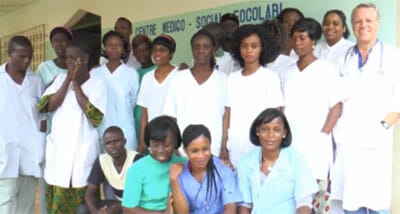
Oct 12, 2015 | Focolare Worldwide
 «During these years I think I alone visited 50,000 patients,» says Dr. A. Carlo Montaguti, a focolarino doctor and Director of the Social Medical Centre of the little Focolare town in Man, Ivory Coast. «I was a doctor in my country, Italy, but my practice was not so intense. Those who preceded me when there was still the war, told me before my departure: Carlo, if you don’t treat them, no one else will.» The patients arrived also in the night. The health records were compiled in the apatam (shed) in front of the hospital, and then they entered for the medical checkup by any of the three doctors of the centre, one of which is Muslim. The doctors prescribed the lab tests and got the results in about two hours. In a second visit, the diagnosis was done and the treatment prescribed. In the span of a morning one manages to get everything done. «It is not usual to have a lab for analysis in such a small centre in the suburbs,» Carlo continues; «I worked for four years without a lab and it was really difficult.» Luc Dro, head of the laboratory, explained that being in a tropical zone, there is great need for studies on parasites that cause malaria and other endemic diseases, but the lab is able to perform a complete check-up. The centre also has a small pharmacy, where over a 100,000 consultations were registered. «We do all that is possible to put the patients at the core of our work – says Dr. Alavo Bazini – and this explains the great influx. It does not suffice to say “the medicines are free of charge,” if the people are not satisfied. This is where the centre’s originality lies.» When possible, there is also a cultural mediator who translates into the local tongues. «We also have the internet and wi-fi connection – explained Dr. Eliassa Sow – In this way we can do research work and cooperate with other doctors from afar.» Dr. Montaguti continues «I came in 2004 – when the centre consisted of two tiny rooms for visits and one for medications. The people have appreciated our work especially because during the war in 2002, in the most difficult moments when all the foreigners were leaving the country, we decided to stay on, and risk our lives. They understood that we were there for them and this generated their trust. At times it came about that on a Monday, after the weekend break, the patients said: ”Doctor, I tried to endure in order to come to you.” If their situation was not too serious, they preferred to wait another day and suffer a bit more, to be able to come here!» One of the strong points of the centre is also the healthcare team which is involved in the entire care process. When the political-military crisis ended and the situation in the region calmed down, the term of the centre was extended and in 2008 we moved into a new facility. «It seemed like a dream – Carlo recalls – but after two years with the influx of patients – more than 80 a day plus their relatives – quite a crowd! – the old structure could not take any more. And we continued to dream.» And so last 10 October, the new Focolare Social Medical Centre, opened last 7 September, was inaugurated in Man, a stone’s throw from Mariapolis Victoria. It is a modern architecture for a facility of over 1,000 sq. m, with the addition of new services: 15 beds, a dentist’s studio, a physiotherapy room, and new diagnostics equipment (ultrasound scans, hemoglobin electrophoresis and microbiology). In the last days the nutrition centre, previously located in the district of Libreville, was completed and transferred to cure infantile malnutrition..
«During these years I think I alone visited 50,000 patients,» says Dr. A. Carlo Montaguti, a focolarino doctor and Director of the Social Medical Centre of the little Focolare town in Man, Ivory Coast. «I was a doctor in my country, Italy, but my practice was not so intense. Those who preceded me when there was still the war, told me before my departure: Carlo, if you don’t treat them, no one else will.» The patients arrived also in the night. The health records were compiled in the apatam (shed) in front of the hospital, and then they entered for the medical checkup by any of the three doctors of the centre, one of which is Muslim. The doctors prescribed the lab tests and got the results in about two hours. In a second visit, the diagnosis was done and the treatment prescribed. In the span of a morning one manages to get everything done. «It is not usual to have a lab for analysis in such a small centre in the suburbs,» Carlo continues; «I worked for four years without a lab and it was really difficult.» Luc Dro, head of the laboratory, explained that being in a tropical zone, there is great need for studies on parasites that cause malaria and other endemic diseases, but the lab is able to perform a complete check-up. The centre also has a small pharmacy, where over a 100,000 consultations were registered. «We do all that is possible to put the patients at the core of our work – says Dr. Alavo Bazini – and this explains the great influx. It does not suffice to say “the medicines are free of charge,” if the people are not satisfied. This is where the centre’s originality lies.» When possible, there is also a cultural mediator who translates into the local tongues. «We also have the internet and wi-fi connection – explained Dr. Eliassa Sow – In this way we can do research work and cooperate with other doctors from afar.» Dr. Montaguti continues «I came in 2004 – when the centre consisted of two tiny rooms for visits and one for medications. The people have appreciated our work especially because during the war in 2002, in the most difficult moments when all the foreigners were leaving the country, we decided to stay on, and risk our lives. They understood that we were there for them and this generated their trust. At times it came about that on a Monday, after the weekend break, the patients said: ”Doctor, I tried to endure in order to come to you.” If their situation was not too serious, they preferred to wait another day and suffer a bit more, to be able to come here!» One of the strong points of the centre is also the healthcare team which is involved in the entire care process. When the political-military crisis ended and the situation in the region calmed down, the term of the centre was extended and in 2008 we moved into a new facility. «It seemed like a dream – Carlo recalls – but after two years with the influx of patients – more than 80 a day plus their relatives – quite a crowd! – the old structure could not take any more. And we continued to dream.» And so last 10 October, the new Focolare Social Medical Centre, opened last 7 September, was inaugurated in Man, a stone’s throw from Mariapolis Victoria. It is a modern architecture for a facility of over 1,000 sq. m, with the addition of new services: 15 beds, a dentist’s studio, a physiotherapy room, and new diagnostics equipment (ultrasound scans, hemoglobin electrophoresis and microbiology). In the last days the nutrition centre, previously located in the district of Libreville, was completed and transferred to cure infantile malnutrition..
Video presentation of the Medical Centre (in French) https://vimeo.com/141902777
![Chiara Lubich: Daring to dream of a new era]()
Oct 10, 2015 | Non categorizzato
 “If one day all people, not as individuals but as nations, learn to put themselves aside, to put aside the idea they have about their own country, … and if they were to do this as the expression of the mutual love between States that God wants, just as he wants mutual love among individuals, that day will mark the beginning of a new era. For on that day, Jesus will be alive and present among peoples. … Now is the time for every people to go beyond its own borders, to look farther. Now is the time to love other countries as our own, to acquire a new purity of vision. To be Christians it is not enough to be detached from ourselves. The times we live in ask something more of the followers of Christ: the awareness of Christianity’s social dimension. … … We hope that the Lord may have mercy on this divided and confused world, on peoples closed within their own shells, contemplating their own beauty – so special to them – although it is limited and unsatisfying. With clenched teeth they hang on to their own treasures, those very treasures that could help other peoples, where many are dying of hunger. May the Lord cause the barriers to fall, and charity to flow unhindered between one land and another, in an endless stream of spiritual and material goods. Let us hope that the Lord brings about a new order in the world. Only he can make humanity one family and cultivate the distinctive characteristics of each people, so that the splendour of each, placed at the service of others, may shine with the one light of life. By making each earthly country beautiful, this light will make each one a foretaste of the eternal Country”. Chiara Lubich
“If one day all people, not as individuals but as nations, learn to put themselves aside, to put aside the idea they have about their own country, … and if they were to do this as the expression of the mutual love between States that God wants, just as he wants mutual love among individuals, that day will mark the beginning of a new era. For on that day, Jesus will be alive and present among peoples. … Now is the time for every people to go beyond its own borders, to look farther. Now is the time to love other countries as our own, to acquire a new purity of vision. To be Christians it is not enough to be detached from ourselves. The times we live in ask something more of the followers of Christ: the awareness of Christianity’s social dimension. … … We hope that the Lord may have mercy on this divided and confused world, on peoples closed within their own shells, contemplating their own beauty – so special to them – although it is limited and unsatisfying. With clenched teeth they hang on to their own treasures, those very treasures that could help other peoples, where many are dying of hunger. May the Lord cause the barriers to fall, and charity to flow unhindered between one land and another, in an endless stream of spiritual and material goods. Let us hope that the Lord brings about a new order in the world. Only he can make humanity one family and cultivate the distinctive characteristics of each people, so that the splendour of each, placed at the service of others, may shine with the one light of life. By making each earthly country beautiful, this light will make each one a foretaste of the eternal Country”. Chiara Lubich
Excerpt from “Mary, bond of unity among nations”, Summer 1959 – Published in “Essential Writings”, New City Press, New York, 2007. pp. 231-2

 They have been married for 23 years and have two teenage sons. Raised in Catholic families, they met in the Focolare Movement to which they still belong. “We had worked in the past with a group of other young people in a marginalised quarter on the periphery of Bogota,” they recounted in their testimony at the Synod assembly. “We played with the children, taught the adults how to read, and offered free medical and dental assistance. They were talking about the Los Chircales quarter where the Centro Sociale Unidad is headquartered: “Obstacles were not lacking,” the Colombian couple who spoke at the Synod the family, said, “beginning from our concern for our personal well-being, and the fear of going into those rundown neighbourhoods and slums. But the desire to serve those brothers and sisters was more powerful than our fragility.”
They have been married for 23 years and have two teenage sons. Raised in Catholic families, they met in the Focolare Movement to which they still belong. “We had worked in the past with a group of other young people in a marginalised quarter on the periphery of Bogota,” they recounted in their testimony at the Synod assembly. “We played with the children, taught the adults how to read, and offered free medical and dental assistance. They were talking about the Los Chircales quarter where the Centro Sociale Unidad is headquartered: “Obstacles were not lacking,” the Colombian couple who spoke at the Synod the family, said, “beginning from our concern for our personal well-being, and the fear of going into those rundown neighbourhoods and slums. But the desire to serve those brothers and sisters was more powerful than our fragility.”  “We married and the grace of the sacrament soon began to manifest itself.” They are very different from one another: Luis, “the calm type”, Maria Angélica “a volcano”. “We knew that human love easily vanishes. The years go by and the initial enchantment diminishes. For this reason it was important for us to bulk up on God’s love, which taught us to love in the small things of everyday life.” Luis admitted: “For me that means not waiting to be waited on, but rather to help out washing the dishes, or to listen more attentively when she wants to tell me something. On her part, M. Angélica watches the Formula 1 with me..” By nourishing ourselves on the Eucharist, approaching the sacrament of Confession and remaining in this relationship of mutual love, we experience that Jesus becomes present in our midst, and then we have the light to raise our sons, and the strength to face the inevitable difficulties that come our way.” “A short time ago we had a rather strong conversation and the unity between us was shattered. That night, we went to bed without apologising to each other” (one of the three things that Pope Francis says should never be done in the life of a couple): “I telephoned Lucho,” M. Angélica recounts, “and told him I was sorry for having answered him so awfully. Then it turned into an opportunity to begin again loving every time we fail.” Together with bishops and priests from several cities in Colombia, and with other families and young people, they organized a series of visits to several poor communities; “The idea was to share our experiences and offer some formation as a family. Some of the couples confided their desire to receive the sacrament of matrimony.”
“We married and the grace of the sacrament soon began to manifest itself.” They are very different from one another: Luis, “the calm type”, Maria Angélica “a volcano”. “We knew that human love easily vanishes. The years go by and the initial enchantment diminishes. For this reason it was important for us to bulk up on God’s love, which taught us to love in the small things of everyday life.” Luis admitted: “For me that means not waiting to be waited on, but rather to help out washing the dishes, or to listen more attentively when she wants to tell me something. On her part, M. Angélica watches the Formula 1 with me..” By nourishing ourselves on the Eucharist, approaching the sacrament of Confession and remaining in this relationship of mutual love, we experience that Jesus becomes present in our midst, and then we have the light to raise our sons, and the strength to face the inevitable difficulties that come our way.” “A short time ago we had a rather strong conversation and the unity between us was shattered. That night, we went to bed without apologising to each other” (one of the three things that Pope Francis says should never be done in the life of a couple): “I telephoned Lucho,” M. Angélica recounts, “and told him I was sorry for having answered him so awfully. Then it turned into an opportunity to begin again loving every time we fail.” Together with bishops and priests from several cities in Colombia, and with other families and young people, they organized a series of visits to several poor communities; “The idea was to share our experiences and offer some formation as a family. Some of the couples confided their desire to receive the sacrament of matrimony.” 






 Now, the school does exist and it’s named is “Drop by Drop”. It’s an unlikely pairing between Latina and the mire of Mae-Sot: injustice, illness, rape, abuse, and so on. Some do well, and some thank God that they are still alive in the morning. . . and at night! Like one of the children at the school. I ask his mother: “What is your son’s name?” “Chit Yin Htoo,” she tells me. It means: “If you love me answer me.” “Did you give him the name when he was born?” I ask. “Maybe 3 or 4 years ago, maybe 5 or 6.” At this point I stop and am unable to go on writing. I can only pray that I don’t cry in front of this mother. How can this be? This project was a “loving folly“’ that only the mind of a child could dream up. And that’s what love is, it makes the desert flower, it spurs you to do the impossible, and it makes you glad! We adults follow these children with fear and trembling and respect, I would say: “Their angels gaze upon the Father in Heaven.” When I’m with “If you love me, answer me” I find it hard to make him smile. He’s shy and reserved. Only after much time am I able to take him in my arms: 6 years old, or perhaps 5. . . nobody is really sure . . . fragile and light as a feather. What have his small eyes seen? With a faint voice he’s just able to whisper a message. We distribute food, milk and especially puppets and toys: lanterns, then clothes that make everyone happy. “We don’t have enough for everyone, but let’s ask for a miracle,” I suggest. Let’s try to love one another and take care of each other as we do of ourselves.” Their eyes brighten when they see the football and football uniforms that have been given by a Football Academy of Priverno, Italy. So much love arrives, and the children are gladdened because they feel the love. It changes their sad eyes.
Now, the school does exist and it’s named is “Drop by Drop”. It’s an unlikely pairing between Latina and the mire of Mae-Sot: injustice, illness, rape, abuse, and so on. Some do well, and some thank God that they are still alive in the morning. . . and at night! Like one of the children at the school. I ask his mother: “What is your son’s name?” “Chit Yin Htoo,” she tells me. It means: “If you love me answer me.” “Did you give him the name when he was born?” I ask. “Maybe 3 or 4 years ago, maybe 5 or 6.” At this point I stop and am unable to go on writing. I can only pray that I don’t cry in front of this mother. How can this be? This project was a “loving folly“’ that only the mind of a child could dream up. And that’s what love is, it makes the desert flower, it spurs you to do the impossible, and it makes you glad! We adults follow these children with fear and trembling and respect, I would say: “Their angels gaze upon the Father in Heaven.” When I’m with “If you love me, answer me” I find it hard to make him smile. He’s shy and reserved. Only after much time am I able to take him in my arms: 6 years old, or perhaps 5. . . nobody is really sure . . . fragile and light as a feather. What have his small eyes seen? With a faint voice he’s just able to whisper a message. We distribute food, milk and especially puppets and toys: lanterns, then clothes that make everyone happy. “We don’t have enough for everyone, but let’s ask for a miracle,” I suggest. Let’s try to love one another and take care of each other as we do of ourselves.” Their eyes brighten when they see the football and football uniforms that have been given by a Football Academy of Priverno, Italy. So much love arrives, and the children are gladdened because they feel the love. It changes their sad eyes. 
